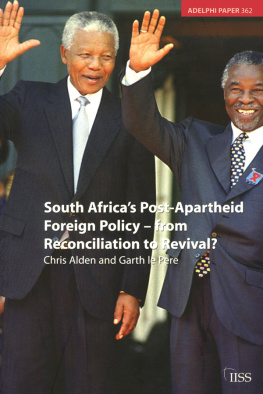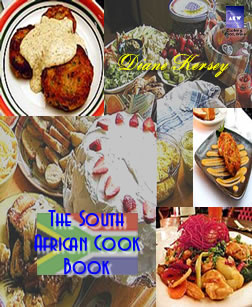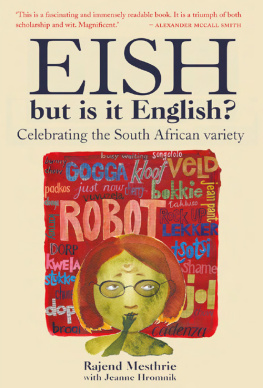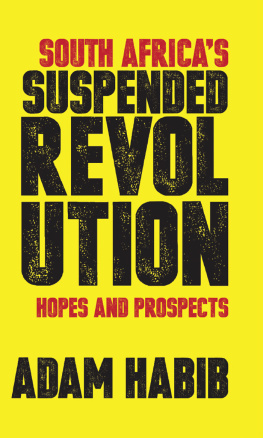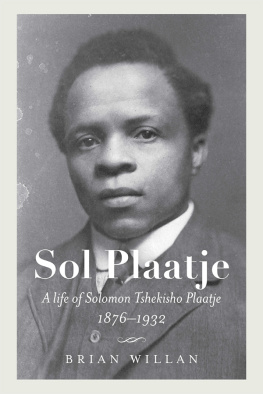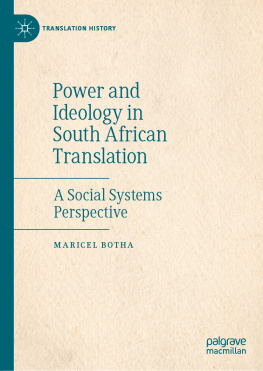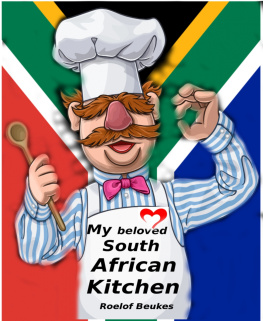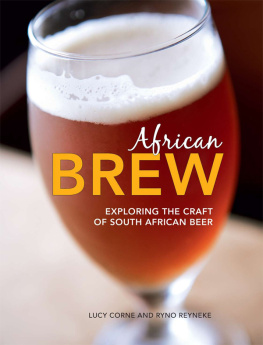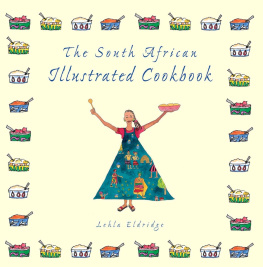Distiller examines Shakespeares place in South Africas education and culture without universalising the contradictory forces that have made that position controversial and is thus able to provide both a fascinating account of current South African culture and a precise analytical model with which to challenge the concept of a single global or post-colonial Shakespeare.
Kate McLuskie, Emeritus Professor of Shakespeare Studies, The Shakespeare Institute
Natasha Distiller, of all scholars working on Shakespeareand South Africa, asks the most interesting questions. She pushes us to think about our relationships not only to the oeuvre of a Renaissance poet-playwright, but to race, discourses of authenticity, national identifications, pedagogy, the institutions of literature in the country, and the place of South Africa in the global mediascape.
Andrew van der Vlies, Queen Mary, University of London
... a fascinating book by a leading authority on Shakespeare in South Africa ... broad and wide ranging issues that go to the heart of debates about South African identity and politics.
Brian Willan, Hon. Senior Research Fellow, Rhodes University

Published in South Africa by:
Wits University Press
1 Jan Smuts Avenue
Johannesburg
2001
www.witspress.co.za
Copyright Natasha Distiller 2012
First published 2012
ISBN 978-1-86814-561-4 (print)
ISBN 978-1-86814-597-3 (epub)
All rights reserved. No part of this publication may be reproduced, stored in a retrieval system, or transmitted in any form or by any means, electronic, mechanical, photocopying, recording or otherwise, without the written permission of the publisher, except in accordance with the provisions of the Copyright Act, Act 98 of 1978.
Edited by Inga Norenius
Cover design and typesetting by Farm Design www.farmdesign.co.za
Printed and bound by Ultra Litho (Pty) Limited
Acknowledgements
My work on Shakespeare and South Africa was first developed in South Africa, Shakespeare and Post-colonial Culture (Lampeter: Edwin Mellen Press, 2005).
I would like to gratefully acknowledge the anonymous peer reviewers for Wits University Press, whose rigorous engagement with the original version of this book helped to improve it immeasurably. I thank them for their time, input, knowledge, and collegiality.
Permission to publish reworked versions of the following journal articles is gratefully acknowledged:
Taylor and Francis Group for The Mobile Inheritors of any Renaissance English Studies in Africa 51.1 (2008): 138144; English and the African Renaissance English Studies in Africa 47. 2 (2004): 109124; Begging the Questions: Shakespeare in Post-apartheid South Africa Social Dynamics 35.1 (2009): 177191.
University of Delaware Press for Through Shakespeares Africa: Terror and Murder? Shakespeares World/ World Shakespeares, eds Richard Fotheringham, Christa Jansohn, and R.S. White (Newark: University of Delaware Press, 2008), pp. 382396.
Ashgate Publishing Group for Tonys Will: TitusAndronicus in South Africa 1995 Shakespearean International Yearbook, eds Graham Bradshaw, Tom Bishop and Laurence Wright (Farnham: Ashgate, 2009), pp. 152170.
Cambridge University Press for Shakespeare and the Coconuts Shakespeare Survey 62 (2009): 211221.
Thanks to Stephen Francis and Rico Schacherl for the Madam & Eve cartoon Mail & Guardian 30 November 6 December 2007, p. 33.
Grateful thanks to Ingrid de Kok for permission to use her poem Merchants in Venice which was first published in Terrestrial Things (Kwela Books and Snailpress, Cape Town, 2002) and later re-published in Seasonal Fires: new and selected poems (Seven Stories Press, New York, 2006).
My thanks to Jennifer Poole for her sterling research and editorial assistance, to Julie Miller and Roshan Cader at Wits University Press, and to Inga Norenius for her editing.
Introduction
Ingrid de Koks poem Merchants in Venice addresses the relationship between rich, established Europe and its so-called high culture, and poor, entrepreneurial Africa. The poem offers ways to read the presence of Africans in this famous landscape. One of the poems subtexts speaks to Africans political, economic, and cultural rights, and the disavowal, refusal, or lack of their recognition. Ancient histories of exchange resonate with the globalised present, as the young men of De Koks poem are saturated, not only in Venices celebrated light, but also in relations of power that span time and place, and are imbricated with the markers of culture invoked by the poems descriptions as well as by its title:
Merchants in Venice
We arrive in Venice to ancient acoustics:
the swaddling of paddle in water,
thud of the vaporetto against the landing site,
and the turbulent frescoes of corridors and ceilings,
belief and power sounding history
with the bells of the subdivided hour,
on water, air and all surfaces of light.
What have we Africans to do with this?
With holy water, floating graves and cypresses,
the adamantine intricacy of marble floors,
gold borders of faith, Marys illuminated face
and the way Tintorettos Crucifixion is weighted
with the burden of everyday sin and sweat,
while the city keeps selling its history and glass.
On the Rialto, tourists eye the wares
of three of our continents diasporic sons,
young men in dreadlocks and caps, touting
leather bags and laser toys in the subdued dialect
of those whose papers never are correct,
homeboys now in crowded high-rise rooms
edging the embroidered city.
How did they get from Dakar to Venice?
What brotherhood sent them to barter and pray?
And on long rainy days when the basilica
levitates, dreaming of drowning,
do they think of their mission and mothers,
or hover and hustle like apprentice angels
over the shrouded campos and spires?
Into the city we have come for centuries,
buyers, sellers, mercenaries, spies,
artists, saints, the banished,
and boys like these: fast on their feet,
carrying sacks of counterfeit goods,
shining in saturated light,
the mobile inheritors of any renaissance.
De Koks poem brings to the surface what is hidden beneath the beautiful veneer of European culture, the way Tintorettos Crucifixion is weighted / with the burden of everyday sin and sweat, / while the city keeps selling its history and glass.
Commerce and its patterns of exploitation, and the real lives of real people lived above, beneath, and within the layers of art and history that comprise the physical and cultural architecture of Venice, inform Europes beautiful objects and invest them with a different meaning to their commodified claims to fame. The poem insists on this without reducing Europes artistic accomplishments to instrumentalist objects of power and overpowering. At the same time, the poem makes visible the human struggles which belie any easy celebration of intrinsic worth. It brings history and politics into art. It also stakes a claim for what Africans are entitled to inherit from this history, by insisting that they have always been a part of the grubby, painful human living which makes high art, which enables it to exist as object and as artefact. Europes art would not mean what it does without Africa, that is, without its exploited human and other resources, and its symbolic position in a global history and economy. With this acknowledgement, Africans relationship to Europes texts and treasures becomes participatory. At the same time, art, Europe, and Africa are all located in the realities of daily life, within the dynamics of which each concept is constructed.


